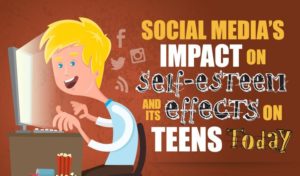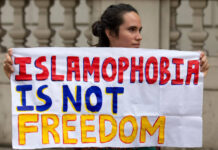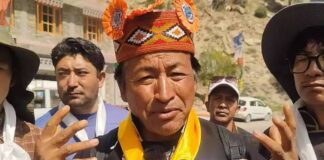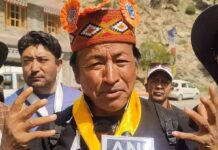They call it the internet era and rightly so! Technological advances are taking the world by storm as our dependence on the internet and social media is ever increasing. Internet and social media access enable us to disseminate universal information from the luxury of our homes. Be it for information or entertainment, social media has become our go-to place. What’s more? It doesn’t discriminate. Every smartphone user, from a 10-year-old to an 80-year-old, has equal and unbiased access to the internet and social media.

Users engage with social media in pursuit of new relationships, social acceptance, diversion or even self-promotion. It has become a free and unregulated platform for youngsters to showcase their “talent” and promote themselves. This access with worldwide audience is a boon for young and raw talent looking for recognition, however, when used by immatures, it’s a bane for not only them but for the whole society they’re operating into. Without a doubt, social media platforms have a strong influence on youth, but how people utilize the digital platform is crucial.
Any social media user who has established credibility and has gained followers through his or her content (which is not regulated) becomes an ‘influencer’. An influencer – to whom our youngsters look up to, aspire to become and follow religiously. An Influencer – whose audience is our whole community and who represents our community globally. Yes, that is exactly the power these influencers have. Some social media influencers do social activism through the content they produce, promote positivity and awareness. However, there are some who are doing great disservice to society through their content. In the Kashmiri context, ‘influencers’ are doing more of the latter.
Media literacy along with self-awareness is a prerequisite for anyone to call themselves an ‘influencer’. While media literacy helps to sensitize people on the impact of the media content on culture and society, self-awareness means conscious knowledge of not only about self, but also about cultural roots and social fabric. The combination of these two can help make the social media a better place. Unfortunately, our social media influencers lack both, doing more harm than good to society.

The alluring audio-visual content of social media influencers such as filtered photographs, travel vlogs and partying pictures can have a negative effect on the lives of youth. Roasting people, mocking sensitivities of communities, demeaning the other and glorifying the self are various petty themes of our content creators. While some on the surface come across as funny and entertaining, they have a widespread effect on shaping young minds.
Surveys suggest that about 40 per cent of social media users are teenagers in the age group of 13-19 years. As they are at a stage of their lives when their self-esteem is being questioned, they seek acceptance and follow social media influencers. To them, this seems a way out and it is not only unrealistic but also destructive in the long run. Often these young vulnerable minds think that they are not as privileged as the influencers and this leads to low self-esteem and insecurity. This, in fact, can have a huge impact on their mental health and social relationships.
The ideas and ideals propagated by influencers penetrate into grassroots of society. As a result, youngsters trust the influencers blindly and choose to run to social media when beset with a personal problem because they want to listen to an influencer’s view instead of their family and friends.
In the context of Kashmir, social media influencers are having a more negative impact than a positive one on their young followers. Not to sound demeaning, but most of the Kashmiri influencers are more influenced themselves. One can see that our Instagram and YouTube “stars” are evidently influenced by western ideologies and cultures.
Most of the Kashmiri influencers proclaim to be experts on religion, feminism, liberty, political ideologies, parenting, relationships and mental health without actually having any expertise in the subject. Even doctors have to invest time and energy into a specific field to be called specialists, but these pre-eminent classes of people tend to surpass all the professionals. Influencers have persuasive effects on minors and their non-expert opinions can give a destructive direction for issue resolution of minors. These influencers have a responsibility to be ethical and honest with their followers.

Hatred? No! Disappointment, definitely! Why? Because being an influencer one should not only enjoy the perks of popularity, but also realize the responsibilities. Especially when operating in a dynamic and sensitive society like Kashmir, one has to be more mindful of the impact of the content that one is uploading. Kashmir is the world’s most militarized zone and our identity and culture is under constant assault. Being an influencer in a society like ours comes with the responsibility of upholding and maintaining the distinctive identity of the community and not just be an agent of promotion of dominant culture and a tool of dilution of society, culture and struggle.
Influencers should keep their personal interests aside and work towards the goal that serves the greater good to be called an influencer in the real sense. Youngsters, by following influencers, have become politically and socially biased, losing individuality and power of independent critical thought.
The large-scale influx of unregulated content combined with unrestricted access surely marks a threat especially to youth and to society in general. To form an insulation to a certain degree, mediations and parental attitudes are crucial. Parents and teachers have a major role in teaching media literacy to the youth, who in turn will have to learn how to differentiate between good and bad. Influencers need to be accommodative to healthy conversations. They need to educate teenagers about not blindly following them. Instead of idolizing influencers, youth need to educate themselves and be self-reliant.
















